Events and Highlights
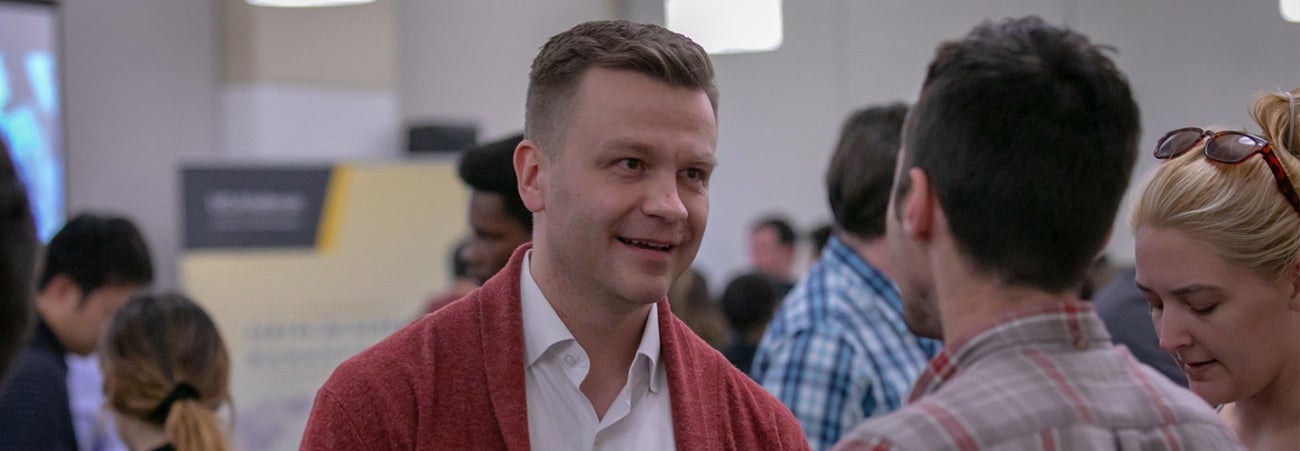
Other UCLA Events

April 29, 2024 | 1:00 PM PDT
In the Shadow of Empire: Art in Occupied Japan
This talk unearths an immensely creative yet almost entirely overlooked period in Japanese art to reveal how it variously accommodated and resisted the workings of American empire in the early Cold War. With a focus on artworks made during the occupation (1945-1952), it shows how the political stakes of artistic expression in a polarizing world manifested in the unique site that was US-occupied Japan. The presentation will demonstrate how this transnational history of art, which stretches beyond Japan to include art from China, Europe, and the United States, holds the potential for rethinking not only the history of Japanese postwar art but also our existing narratives of global postwar art. Speaker: Alicia Volk, professor of Japanese art, University of Maryland. Sponsored by the Terasaki Center for Japanese Studies.
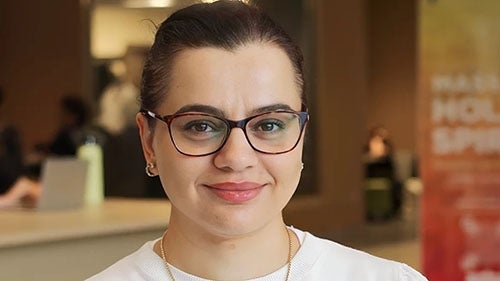
April 29, 2024 | 4:00 PM PDT
Walking Away From the Headscarf: Analyzing the Online Platform "You Will Not Walk Alone"
Since 2018, an online platform with the name You Will Not Walk Alone (Yalniz Yurumeyeceksin) has been publishing anonymous letters from Turkish Muslims, the majority of whom are young women socialized into wearing the headscarf during the AKP era. The focus of this lecture will be the narratives of deveiling on the platform in the context of the changing dynamics between the Islamist and secularist regimes of power in Turkey within the last decade. By questioning what these young women are walking away from and what they are walking towards with their desire to remove their hijab, this lecture offers a rethinking of the current role of the headscarf as a maker and/or marker of Islamic piety and political subjectivity. Speaker: Semiha Topal, Program Manager, Tuohy Center for Interreligious Understanding, John Carroll University in Cleveland, OH. Sponsored by the Center for Near Eastern Studies, Department of Gender Studies, and the UCLA Center for the Study of Women.
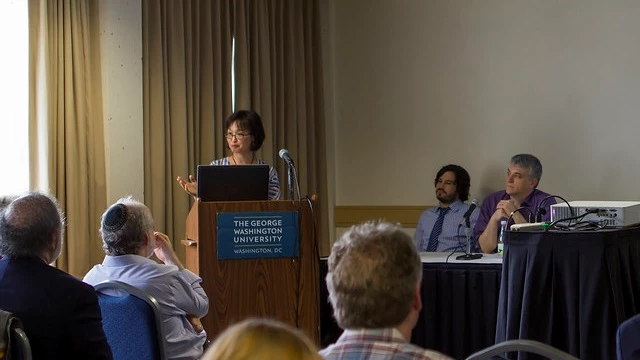
May 1, 2024 | 2:00 PM PDT
The Gender Politics of Superstition in the Chinese Revolution
Opposition to superstition has been a major theme in the Chinese Revolution. This talk takes a historical excursion back to wartime Yan’an (1937–1947), the holy land of the Communist revolution. It discusses the gender politics in the CCP’s campaign against “superstition” at Yan’an that lasted from 1944 to 1945. The Party propaganda singled out male shaman-healers, as well as the traditional ritual order they embodied, as “feudal superstitions” that obstructed the reach of modern medicine to the masses, subjected rural young women to ritual violence, and destroyed lives. The Party crushed the ritual masculinities of shamans through mass meetings, confessions, public trials, and other mass-line methods that it had recently developed in the intra-party Rectification Movement (1942-1945). Drawing on traditional rhetoric of patriarchy and female sexuality, the propaganda aimed to establish the Party as the new moral and political authority that would save rural women’s reproductive bodies for the health of the incipient Party-state. The gender politics in the Yan’an campaign thus offer important insights into both promises and limits of CCP’s wartime social reforms, and into the long-term impact of CCP’s mass mobilization mechanisms. Speaker: Xiaofei Kang, professor of religion and Chinese history at the George Washington University. Sponsored by the Center for Chinese Studies.
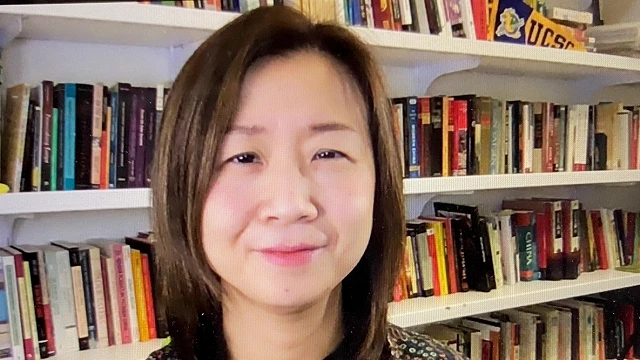
May 2, 2024 | 3:00 PM PDT
China Without Coasts
In the traditional historiography about China as a regionalism, mountains and rivers appear central, but less often do coasts. Instead, the coasts are generally invisible, lost to landlessness, lawlessness, and foreign exploitation. This conceptualization not only erases coastal knowledge and experiences, but also displaces the energies of water frontiers, borderlands, and diasporas as “external” or “overseas.” Troubling these biases, this talk brings attention to the intercoastal Nanyang, a history of the south seas scattered across different archives in China and beyond. It will discuss two broad phenomena, a north-south trade based in Hong Kong and Chinese sailors working on steamships, to argue that a China without coasts is to deny continuums, interfaces, and ambiguities as a basis to write history. Speaker: Shelly Chan, historian of transnational and modern China and associate professor at UC Santa Cruz. Sponsored by the Center for Chinese Studies.
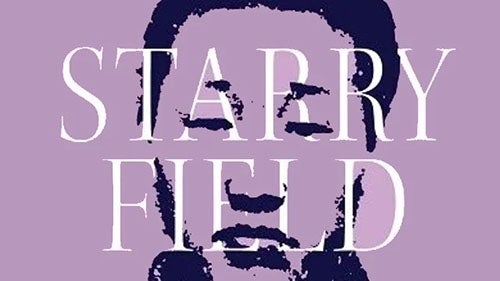
May 2, 2024 | 5:00 PM PDT
Starry Field: A Memoir of Lost History
Starry Field: A Memoir of Lost History is a poignant memoir by journalist Margaret Juhae Lee, who sets out on a search for her family’s history lost to the darkness of Korea’s colonial decades, and contends with the shockwaves of violence that followed them over four generations and across continents. Combining investigative journalism, oral history, and archival research, Margaret reveals the truth about the grandfather she never knew. What she found is that Lee Chul Ha, her grandfather who left her grandmother and two young sons in 1936, was not a source of shame; he was a student revolutionary imprisoned in 1929 for protesting the Japanese government’s colonization of Korea. He was a hero—and eventually honored as a Patriot of South Korea almost 60 years after his death. But reclaiming her grandfather’s legacy, in the end, isn’t what Margaret finds the most valuable. It is through the series of three long-form interviews with her grandmother that Margaret finally finds a sense of recognition she’s been missing her entire life. A story of healing old wounds and the reputation of an extraordinary young man, Starry Field bridges the tales of two women, generations and oceans apart, who share the desire to build family in someplace called home. Sponsored by the Center for Korean Studies, the Asian American Studies Department, the Asian American Studies Center, the Institute for Research on Labor and Employment, and CSW|Barbra Streisand Center.

May 6, 2024 | 2:30 PM PDT
Migration, Street Vending and Social Protection: Insights and Ongoing Reflections from Argentina, Spain, and the United States
Street vending represents a hyper-visible and challenging phenomenon in many global cities, underpinning urban conflict and public debates around its criminalization, tolerance, and legalization. Facing different forms of discrimination, migrant street vendors self-organize to access social and legal protection, with their movements gaining growing political influence. This presentation builds on an ongoing reflection on representations, policies, and practices shaping street vending by confronting different ethnographic fieldwork conducted since 2015 in Argentina, Spain, and the United States with Haitian, Senegalese, and Latin American vendors. The presentation underlines the multiple strategies migrant street vendors use to mobilize, obtain support from local community organizations, and adapt narratives and repertoires of action. Speaker: Félicien De Heusch, LAI Visiting Scholar and a Fulbright Postdoctoral Research Fellow. Sponsored by the Latin American Institute and International Migration Studies.
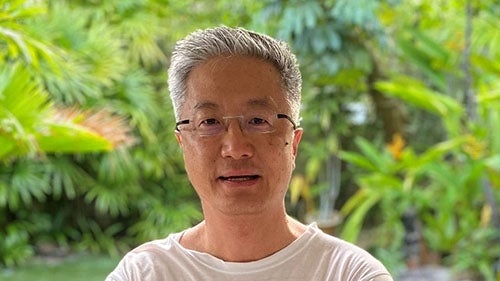
May 14, 2024 | 4:00 PM PDT
Chips War? Global Production Networks and Geopolitics in the Post-Pandemic US and East Asia
Based on Henry Yeung’s, Professor, National University of Singapore, lead-authored chapter on semiconductors in Global Value Chain Development Report 2023 (WTO/ADB, October 2023) and his monograph Interconnected Worlds (Stanford University Press, June 2022), this presentation offers some key empirical observations on the highly contested and politicized nature of semiconductor global production networks since the US-China trade war and the Covid-19 pandemic. In this capital-intensive manufacturing industry, governance and power dynamics are manifested differently from many other industries due to highly complex technology regimes, production network ecosystems, and, more recently, geopolitical imperatives. While some of these critical dynamics had been in play ahead of the 2020s in China, Taiwan, and South Korea, their intensity and significance became more apparent by the early 2020s. Yeung then examines their most significant implications for East Asian development in the post-pandemic 2020s and the need for strategic partnership with technology leaders towards building national and regional resilience in the United States, Western Europe, and East Asia. Yeung ends with a discussion of some relevant future research agendas on technology, resilience, and politics for the interdisciplinary studies of global production networks and global value chains. Sponsored by the Center for Chinese Studies, the Burkle Center for International Relations, and the Department of Geography.
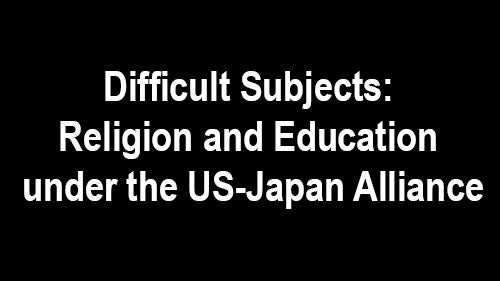
May 15, 2024 | 4:00 PM PDT
Difficult Subjects: Religion and Education under the US-Japan Alliance
To what extent is religion a core part of national citizenship, and to what extent should religions be involved in educating juvenile citizens? Historically, this two-part question has been difficult to answer because people reasonably disagree on matters of democratic principle. But it has also been irresolvable because it hinges on an unwieldy term: religion. Adopting a supranational approach by focusing on the transpacific US-Japan Alliance, this talk tracks the fallout of the “1947 Settlement”—a moment when new Japanese legislation and groundbreaking American jurisprudence clarified that public education should not involve confessional instruction. Although the 1947 Settlement ostensibly clarified the relationship between religion and education, the “new normal” actually elicited considerable confusion, especially as Japan and the United States both embraced religiosity as one of the distinguishing features of Cold War capitalist democracy. This talk tracks how ensuing debates over patriotic ritual, moral instruction, vocational training, and sex education reflected uncertainties about the relationship between religion, democratic citizenship, and capitalist subjectivity. Along the way, it upends some conventional narratives about late twentieth-century “secularization” while also showing how religious studies offers indispensable tools for understanding some of the most vexing legal and political dilemmas of our time. Speaker: Jolyon Thomas, book author. Sponsored by the Center for Buddhist Studies.

May 17, 2024 | 12:00 PM PDT
Transnational Social Protection: Social Welfare Across National Borders
The idea that social rights are something we are eligible for based on where we live or where we are citizens is out-of-date. In Transnational Social Protection, Peggy Levitt, Erica Dobbs, Ken Chih-Yan Sun, and Ruxandra Paul consider what happens to social welfare when more and more people live, work, study, and retire outside their countries of citizenship where they receive health, education, and elder care. The authors use the concept of resource environment to show how migrants and their families piece together packages of protections from multiple sources in multiple settings and the ways that these vary by place and time. They further show how a new, hybrid transnational social protection regime has emerged in response to the changing environment that complements, supplements, or, in some cases, substitutes for national social welfare systems as we knew them. Examining how national social welfare is affected when migration and mobility become an integral part of everyday life, this book moves our understanding of social protection from the national to the transnational. Speakers: Peggy Levitt, Mildred Lane Kemper Chair of Sociology and Chair of the sociology department at Wellesley College; and Erica Dobbs, assistant professor of politics at Pomona College. Sponsored by the Center for Study of International Migration, CCIS and UCSD.

May 18, 2024 | 8:00 AM PDT
CISA Annual Interdisciplinary Graduate Student Conference on South Asia
CISA invites abstracts for presentation at the Annual Graduate Conference on South Asia to be held at UCLA on May 18, 2024. The conference is a unique opportunity for graduate students and faculty to come together and engage in cross-disciplinary conversations about research on South Asia. This one-day conference aims to create a forum for presenting and discussing current research on South Asia from a wide range of disciplines, including the social sciences, humanities, science and technology studies, public policy, and business programs. Program allowing, we also invite presentations in audio-visual and other creative media formats. We welcome submissions from graduate students at all stages of their careers, including early-career researchers, and encourage presentations that are accessible to an interdisciplinary audience and that foster dialogue across fields. The keynote address for this conference will be given by Sunila S. Kale & Christian Lee Novetzke. Sponsored by the Center for India and South Asia.